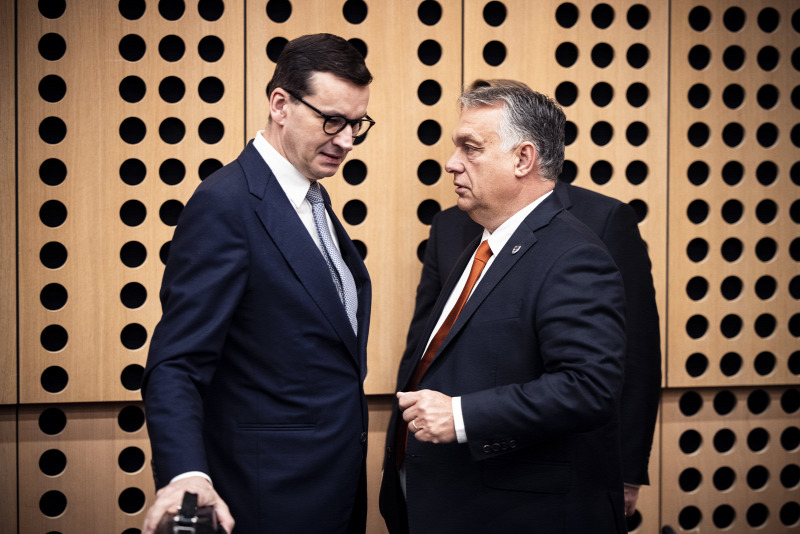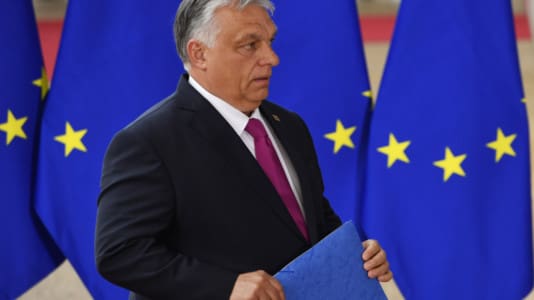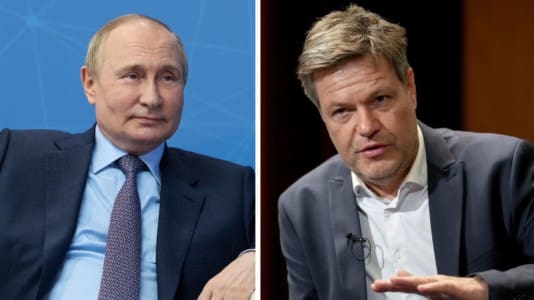Since the outbreak of the Russo-Ukrainian war, Polish-Hungarian relations have deteriorated significantly, thanks in large part to the two countries’ different stances on Russia and Ukraine. Hungary has pursued a realpolitik policy that puts Hungarians first, ensuring the country has the lowest utility bills in Europe while simultaneously refusing to supply weapons to Ukraine. The Polish government, meanwhile, has taken the opposite approach, arguing that arming Ukraine and ensuring its victory is the only way to maintain Europe’s security and protect Poland from an aggressive Russia.
Although the Polish public is highly supportive of Poland’s stance on the conflict, both the country and Europe overall are struggling under inflation and signs of an economic slowdown. The longer the war drags on, the more likely the economic situation will deteriorate.
Now, criticism is being directed at Poland’s ruling Law and Justice party (PiS) from a number of prominent Polish conservative newspapers and media outlets, arguing that Poland may be doing more harm to itself than good with its efforts to slap an oil embargo on Russia, which Poland aggressively pushed for in Europe’s sixth sanctions package. Notably, Hungary carved out an exemption that will allow it to keep Russian oil flowing into the country, which some experts claim will lead to €600 million in profit a year. Lower energy prices should also help Hungary keep inflation lower than its regional peers and even generate significant revenue for its state coffers.
[pp id=18710]
Hungary’s strategy is winning praise from those in Poland who admire the Hungary First policy of Orbán. The latest episode of the Polish media outlet Do Rzeczy’s political podcast “Polska Do Rzeczy” was also on the subject of the sixth sanctions package. Paweł Lisicki, editor-in-chief of the newspaper, and Rafał Ziemkiewicz, the newspaper’s publicist, seemed to come down on the side of Viktor Orbán and his stance on Ukraine.
The two influential conservatives discussed Budapest’s attitude to the embargo and criticized Warsaw’s politics. Lisicki praised Orbán’s position and determination, saying that the Hungarian prime minister was “a politician who thinks in the interests of his own country and its citizens.”
The other participant in the conversation, Ziemkiewicz, contrasted the policies of the Hungarian and Polish governments, considering it a significant difference that “no one in Poland thinks about national interests as they do in Hungary.”
Lisicki also compared the two prime ministers’ statements on the talks with Europe, stressing that Orbán’s priorities had been in favor of the Hungarian people, contrary to Polish Prime Minister Mateusz Morawiecki’s statements, with Lisicki saying that Orban had “negotiated as much as he could to secure the interests of his citizens.”
[pp id=39637]
Łukasz Warzech, an editor of Do Rzeczy, also voiced his dissatisfaction with the attitude of the Polish government and expressed concern about the consequences of the sixth sanctions package on Europe and Poland’s economies. Warzech said he is puzzled by the fact that “the Polish government is not keeping its own interests in mind, as Hungary is doing.” He claims that for Poland, the fight against Russia is more important than the fate of Poland, in contrast to “Orban’s attitude (…) which seems completely rational.”
Other right-leaning media outlets are also criticizing the Polish government, including Wprost, which cannot be accused of any sort of pro-Russian sentiment, with the paper noting that “Orbán is doing the dirty work for other countries,” which, according to the author, is good for the whole region. He is referring to Orbán’s efforts to fight energy sanctions, which the Hungarian prime minister has argued will crash Europe’s economy and harm Hungarian households.
A mixture of growing dissent on Polish policy in Ukraine along with some admiration — or at least general understanding behind Orbán’s actions — could have long-term implications. Notably, it may start a shift within the Polish conservative public, which constitutes a significant share of the country, to start questioning Poland’s full-throated support for Ukraine, especially if those policies are harming Poland’s security and economic interests.
The stakes remain high for not only Poland, but all of Europe. A top German official warned just this week that economic “shockwaves” are likely to hit his own country this winter due to rising energy prices and looming bankruptcies. As Europe’s biggest and strongest economy, what happens to Germany may pale in comparison to whatever economic hardship transpires in Poland, which is still highly reliant on German trade and consumer spending.
Poland is also already grappling with far more damaging inflation numbers than Germany and a major refugee crisis. Notably, Poland’s pleas for more EU aid to support the over 1 million refugees now in the country have largely fallen on deaf ears. The cynical interpretation is that the left-liberal establishment in Brussels senses that these massive refugee numbers increasingly represent a major burden on Poland’s conservative government, a government that Brussels would very much like to see fall from power. A disgruntled Polish public may sour on the newcomers and direct their ire at the United Right coalition when it comes time to vote — an ideal outcome for the EU.
Prominent voices in the Polish conservative press praising Orbán’s stance also offer some light at the end of the tunnel for shaky Hungarian-Polish relations. It shows that nearly fourth months after the outbreak of hostilities, there are still voices on the Polish right who are seeking an alternative path to the current Polish government, and are raising concerns about the course it is taking. These voices may raise more awareness and understanding about the Hungarian government’s position on the conflict, and help build a bridge to restoring relations, which is vital if Hungary and Poland stand any chance in their ongoing conflict with Brussels.





